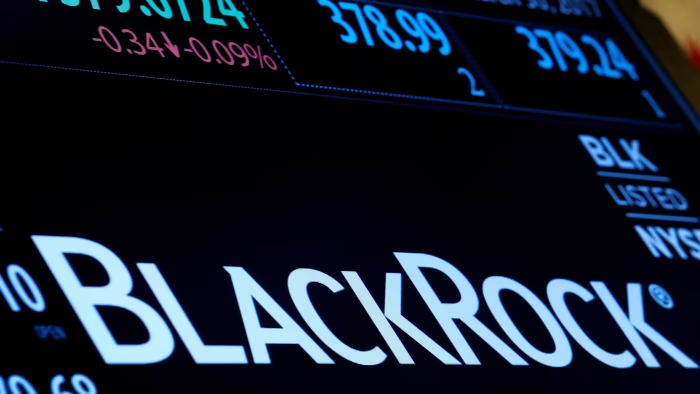Global asset management giant BlackRock is under scrutiny from financial regulators regarding its stakes in several banks. Regulators have set a January deadline for the firm to address concerns about its holdings, a move that underscores increasing oversight on major financial institutions.
As one of the world’s largest asset managers, BlackRock’s influence extends across various sectors, including banking. However, its significant stakes in banks have prompted questions about potential conflicts of interest and the broader implications for market competition.
Background: BlackRock’s Banking Investments
BlackRock, with its vast portfolio of investments, holds stakes in numerous banks worldwide. These investments are typically managed through index funds and exchange-traded funds (ETFs), which are structured to mirror the performance of financial indices.
While such holdings are standard for asset managers, the scale of BlackRock’s investments has raised regulatory concerns. Authorities fear that the firm’s stakes could grant it undue influence over the financial institutions it invests in, potentially impacting decision-making and competition.
Regulatory Concerns: Why the Deadline?
The January deadline stems from concerns raised by banking regulators about BlackRock’s compliance with financial laws and competitive standards. Key issues include:
- Potential Conflicts of Interest
Regulators worry that BlackRock’s significant stakes in multiple banks could lead to conflicts of interest, particularly in cases where the firm holds voting rights that influence corporate governance. - Market Concentration
BlackRock’s expansive reach across the banking sector has drawn criticism for contributing to market concentration, where a few players hold outsized control over the industry. - Compliance with Banking Regulations
Financial institutions and their stakeholders must adhere to strict regulations designed to ensure fairness, transparency, and competition. Regulators are scrutinizing whether BlackRock’s holdings comply with these rules.
The Role of Financial Regulators
Banking regulators play a crucial role in maintaining the stability and integrity of the financial system. By setting deadlines and enforcing compliance, they aim to prevent undue influence by major players and ensure that markets operate fairly.
In BlackRock’s case, the regulators’ actions highlight the delicate balance between promoting investment activity and safeguarding against excessive concentration of power.
BlackRock’s Response
BlackRock has expressed its commitment to working with regulators to address their concerns. In a statement, the company emphasized its adherence to regulatory standards and its role as a passive investor in banking institutions.
The firm has also pointed out that its stakes are primarily held through index funds, which operate based on predefined criteria rather than active decision-making. This distinction, according to BlackRock, minimizes the risk of conflicts of interest.
Implications for the Banking Sector
The outcome of this regulatory scrutiny could have far-reaching implications for the banking sector and beyond. Key considerations include:
- Impact on Institutional Investments
If BlackRock is required to divest or reduce its stakes in banks, it could set a precedent for other large institutional investors, reshaping the landscape of financial investments. - Reassessment of Index Funds
The scrutiny may lead to a reassessment of how index funds are structured and managed, particularly in sectors like banking where market concentration is a concern. - Stronger Oversight
The case underscores the need for continued oversight of large asset managers and their influence on critical sectors. It may prompt regulators to introduce stricter rules for such investments.
The Bigger Picture: Balancing Influence and Oversight
BlackRock’s situation is part of a broader debate about the role of major asset managers in the global economy. As firms like BlackRock continue to grow, their influence on markets, industries, and even government policies has come under increasing scrutiny.
While their investments can drive economic growth and innovation, regulators are tasked with ensuring that this influence does not come at the expense of fairness, competition, and stability.
Challenges Ahead for BlackRock
Meeting the January deadline poses several challenges for BlackRock, including:
- Navigating Regulatory Compliance
Addressing the regulators’ concerns will require careful coordination and potentially significant adjustments to BlackRock’s investment strategies. - Maintaining Investor Confidence
As BlackRock engages with regulators, it must also reassure its clients and investors that its operations remain stable and compliant. - Potential Repercussions
If BlackRock is forced to reduce its stakes, it could face financial and reputational impacts, particularly if such actions are perceived as a regulatory rebuke.
Industry Reactions
The broader financial industry is closely watching BlackRock’s situation, as it may signal increased regulatory scrutiny for other asset managers. Some industry players have expressed support for stricter oversight, arguing that it ensures a level playing field and prevents excessive influence by a few dominant firms.
Others, however, caution that overly stringent regulations could discourage investment activity and stifle market innovation.
Looking Ahead: The Future of Asset Management
The case highlights the evolving role of asset managers in the global financial system. As these firms grow in size and influence, they face mounting pressure to operate transparently and responsibly.
For regulators, the challenge lies in crafting policies that promote stability without stifling growth. Balancing these objectives will be crucial as they navigate the complexities of modern financial markets.
Conclusion
BlackRock’s January deadline to address regulatory concerns marks a pivotal moment for the asset management giant and the broader financial industry. The outcome will not only shape BlackRock’s future operations but also influence how regulators approach large institutional investors in the years to come.
As the global financial system continues to evolve, the interplay between major asset managers and regulators will remain a critical area of focus. By addressing these challenges collaboratively, both parties can work toward a more stable and equitable financial landscape.





Leave a Comment